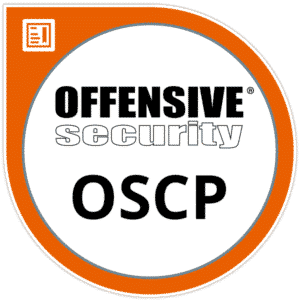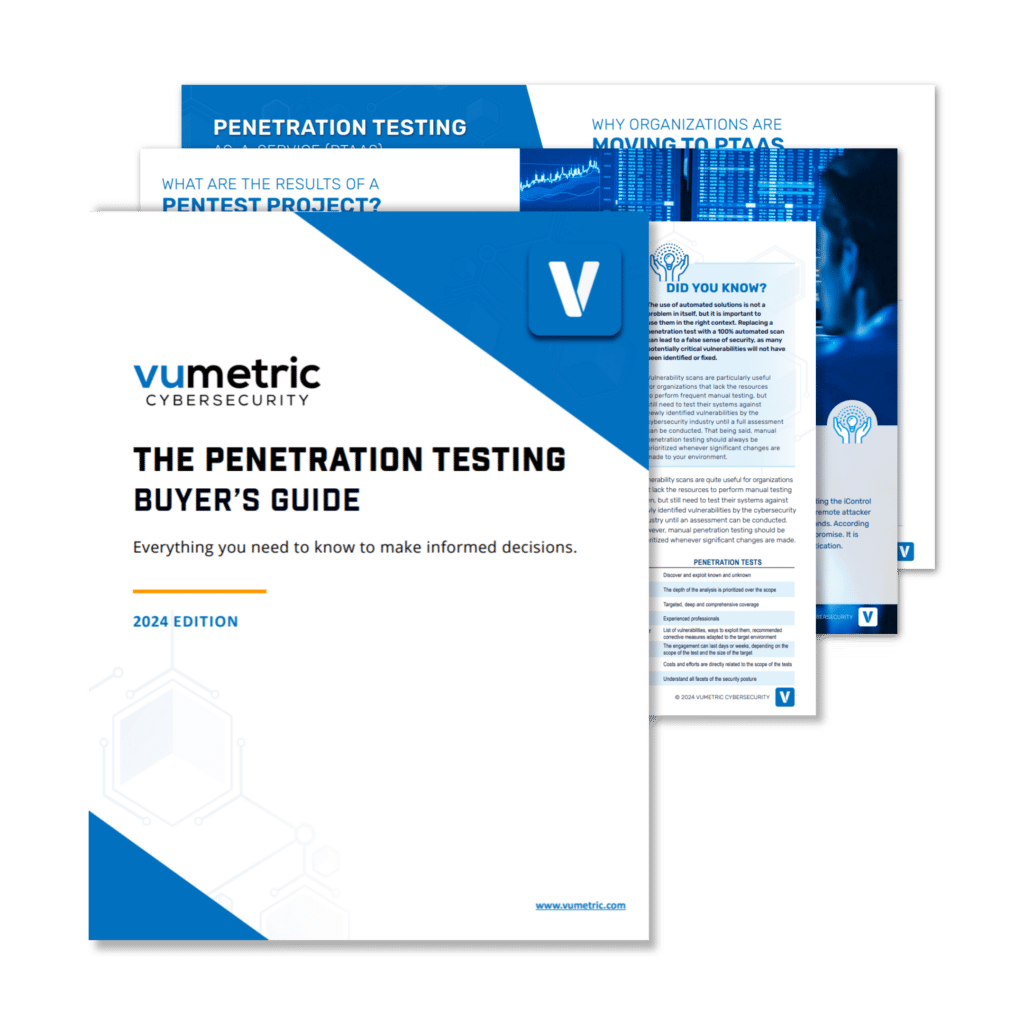If you are looking for a challenging and rewarding cybersecurity certification, look no further than the Offensive Security Certified Professional (OSCP) certification. In this blog post, we will provide tips on how to pass the OSCP exam and become a certified Offensive Security professional!
The OSCP certification requires you to complete a number of hacking labs. The lab exam mimics a penetration test where you will have to compromise several systems, including multiple servers and web applications.
All labs require you to use a wide range of security tools. The OSCP certification is time-consuming and requires dedication and hard work. In fact, the OSCP certification is known for being so difficult that the creator of Kali Linux, Mati Aharoni, called it a “rite of passage.” If you want to increase your chances of passing the OSCP exam, we recommend following these tips:
1. Choose the right OSCP study materials
There are a lot of resources available online, but not all of them are created equal. The PWK course doesn’t teach you everything, but the materials are enough to get you started. I cannot emphasize enough the importance of preparing prior to the course. Aside from the PWK course, these books will also come in handy:
- Penetration Testing: A Hands-on Introduction to Hacking – One of the most recommended resources. This book covers almost all the aspects of what the OSCP entails.
- Web Application Hackers Handbook – I highly suggest reading this book, especially if you’re new to web application penetration testing. The book covers web application attacks from attacking access controls, application logic, SQL Injection, etc.
- RTFM: Red Team Field Manual – This is a great cheat sheet for pen testers.
- Hacking: The Art of Exploitation 2nd Edition – This book covers deeper knowledge about penetration testing.
2. Join an online community
There are many forums and chat rooms where you can ask questions and get support from other OSCP candidates. You can also find other great resources on the Offensive Security website and Reddit (/r/oscp). Exchanging with others OSCP students will help you a lot to prepare for the exam and pass it.
3. Create a cheatsheet
This is probably one of the most important things you can do to pass OSCP. During your preparation, take time to write down everything you learn in a cheatsheet. This will be very useful when you start practicing because you will have all information gathered in one place. It is also helpful during the actual exam when you need to remember a specific command or tool quickly. They are a lot of great OSCP cheat sheets on Github and I highly recommend you to spend some time looking at them.
4. Make sure you understand the concepts
One of the most common mistakes people make is trying to memorize everything without understanding the underlying concepts. This might work for other exams, but OSCP is different; they expect you to understand what you are doing in order to find the right solution for each challenge. So make sure you understand the tools and commands you are using, as well as the methodology behind penetration testing.
Here’s a list of the things you absolutely need to learn to get prepared for OSCP:
- Linux Environment: The course uses Kali Linux and this distribution relies on Debian packages, so you need to have a good understanding of how these work. Focus on learning about apt and dpkg for now; this is enough for the course.
- Web Application Security: The labs rely heavily on web application assessment, so you will need to familiarize yourself with OWASP top 10 and SQL injection attacks. Again, focus on SQL injection; this is a very broad topic, but it covers at least 60% of lab scenarios. Next, you need to learn how to detect vulnerable code and then exploit those weaknesses using SQL injection vectors (pay attention to the timing of loopback requests). After that, you need to learn how to use burp suite, which is the best tool for web application testing and a favorite among OSCP candidates.
- Network Security: You need to learn how TCP/IP works and get familiar with the different types of network packets (IP, ICMP, TCP and UDP). Among other things, you should learn to use nmap for port scanning and enumeration.
- Password attacks: Another important part of the lab is password auditing. There are a lot of tools to crack passwords such as John the Ripper, Cain and Abel and hashcat (with oclhashcat). You need to learn how to use them (simply google “passwords john the ripper” or so), but I prefer hashcat since it is faster than others. You should also know how rainbow tables work and have some experience with them if possible.
- Windows Environment: Finally, you need to practice on a Windows machine since most penetration testing happens for this system (especially for privilege escalation). I suggest using VirtualBox or VMWare Player in order to install Kali Linux alongside Windows.
- Privilege Escalation: This is one of the hardest topics, but you need to understand it because most of the time you will be stuck with a low-privilege shell and no way to get a root shell. I suggest doing a lot of research and practicing because this is the only way you will get better at it.
- Buffer Overflows: This is a very important topic, but it is also very difficult. You need to understand how memory works to do this type of attack. I suggest reading “The Art of Exploitation” by Jon Erickson because it is a great resource that will help you understand how buffer overflows work.
These are some of the topics you need to master to pass the OSCP exam. However, I would also recommend doing some extra research on topics such as enumeration because they might come in handy during the practical lab.
5. Create a study plan
Once you have your materials, sit down and create a study plan. Determine how much time you will need to dedicate to studying each day or week. A well structured study plan will help you stay on track and make the most efficient use of your time. If you are new to penetration testing, start by learning the basics. You need to have a strong foundation to understand the more advanced concepts that will be covered in the OSCP course. Take your time and remember that Rome wasn’t built in a day.
6. Start practicing as soon as possible
The sooner you start practicing, the better. Time management is essential to passing the OSCP exam; if you want to pass, you need to be able to complete all of the challenges in 24 hours. This means that you need to be very efficient and know how to use your time wisely. One way to do this is by starting with easy machines and gradually increasing the difficulty. This will help you get used to the exam format and learn how much time you need for each challenge.
7. Set aside enough time to prepare
The OSCP certification is not something you can study for overnight. Dedicate several weeks or even months to studying before you take the exam. This will allow you to gain a deep understanding of the material and increase your chances of passing the exam.
8. Get hands-on experience
The best way to prepare for the OSCP exam is to get real-world experience with penetration testing. If you can, find an opportunity to intern or work with a professional pentester. This will allow you to learn from someone who has already mastered the material and can help you avoid common mistakes.
9. Take practice exams
In addition to hands-on experience, taking practice exams is one of the best ways to prepare for the OSCP exam. There are several practice exams available online and we recommend taking as many as you can. This will help you identify any areas where you need more study and give you a better idea of what to expect on the actual exam.
10. Practice, practice, practice!
This is probably the most important tip of all. OSCP is a practical exam, so you need to have a lot of hands-on experience to pass it. It is strongly suggested to signup for HackTheBox VIP subscription to get the most out of your labs training. With HTB, you can practice some amazing challenges against real infrastructures. In addition to that, they provide tutorials and clear exercises that help you gain more confidence before going into the OSCP labs. The cost is $10 per month and it is worth every penny.
Do not underestimate the lab practice. The labs will push your skills to the limits and you need to get familiar with different attacks, command line usage, and so on. Use HackTheBox and other vulnerable boxes; these are a great way to train before starting OSCP.
11. Get plenty of rest before the exam
The OSCP exam is grueling and will take everything you’ve got. Make sure you get plenty of rest in the days leading up to the exam so you can be at your best on test day.” Also, during the exam, take breaks when you need to. This will help you stay focused and avoid making mistakes.
12. Document everything during the exam
OSCP requires you to submit a report after the lab, so you need to document your findings. This includes taking screenshots and writing down commands used and their output. I also recommend using a tool like KeepNote in order to keep track of all your notes. This will save you a lot of time when it comes to writing the report.
Hopefully, this article helped you better understand what is needed to pass the OSCP certification. By following these tips, you will be well on your way to becoming an Offensive Security Certified Professional!
Good luck and remember to try harder!




